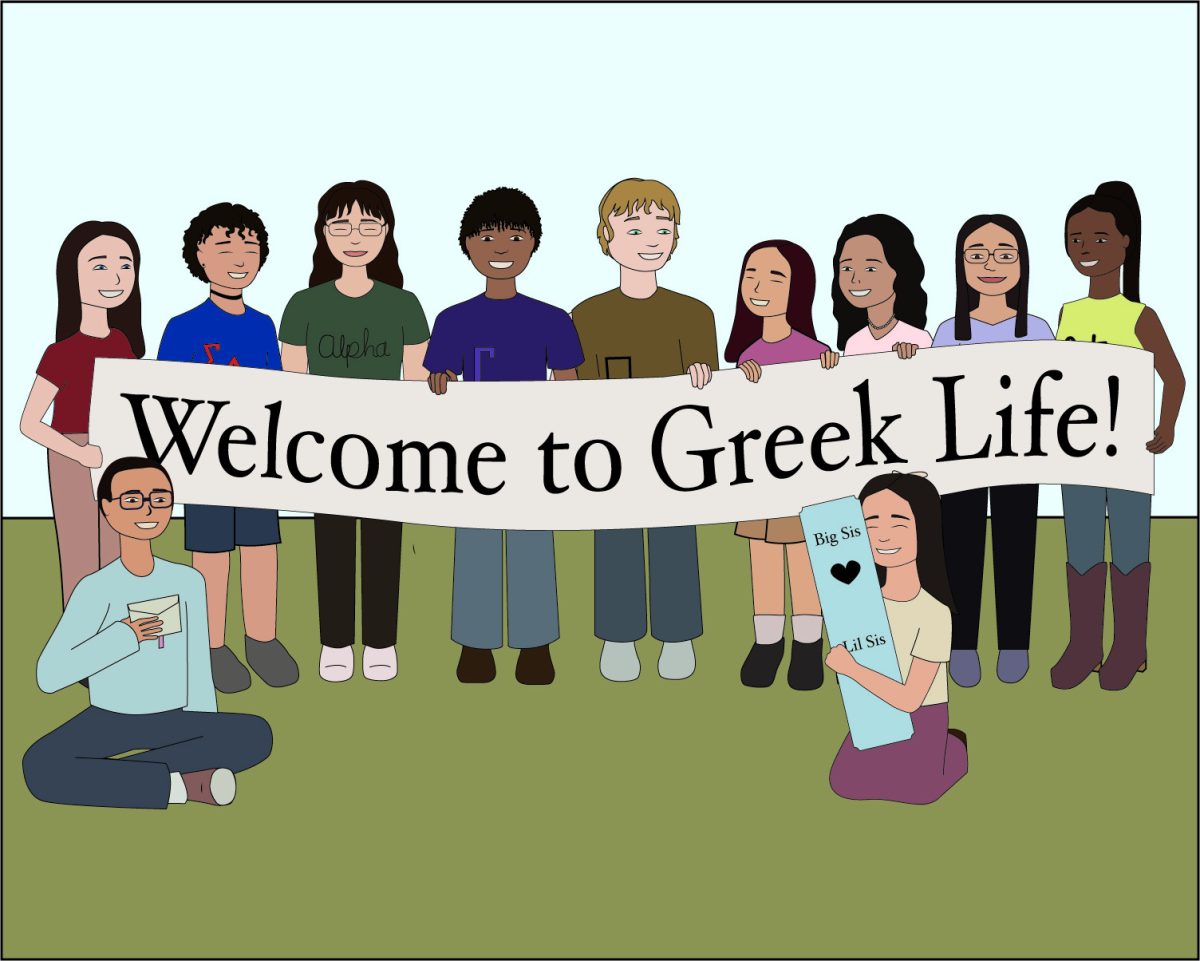Greek life is a historical and prominent aspect of the typical college experience. However, in recent years, largely due to tragedies stemming from a previous culture of harsh Greek hazing, Greek life has earned an unfairly negative reputation.
In reality, modern Greek life at Texas State provides students new skills and opportunities, as well as strengthens familial and cultural bonds.
Bob Dudolski, associate director for Student Involvement & Engagement in the Office of Fraternity and Sorority Life (FSL), said he would not have his job in academic administration had he not joined a fraternity when he was a student at the University of Iowa.
Dudolski also said fraternities and sororities are more than places to party.
“There are people who seek out fraternities and sororities with the wrong intentions,” Dudolski said. “Because of the reputation that fraternities and sororities have, there are people who seek out joining a fraternity or sorority because they think [partying] is what it’s for, but those people tend to not stay very long [when] they realize there’s more to it than that.”
One example of Greek life having a larger purpose comes from the University of Central Florida when the “47 social Greek-lettered organizations [at UCF] raised $1,065,391” in 2017 as a way to give back to the community through philanthropy.
Greek organizations put great deals of effort into tasks that benefit their communities.
Another historical part of Greek organizations is the concept of the legacy, which is an “immediate family member of an initiated member,” according to the FSL office at Stanford University.
Madison Mendizabal, an education sophomore, member of Alpha Delta Pi and president of the Texas State Panhellenic Council, is a Greek legacy. Mendizabal said being a part of a family tradition such as Greek life gives her a closer bond with other legacies and her family.
“A lot of my friends who are not in the Greek world don’t understand [Greek life],” Mendizabal said. “[They think] it’s paying for friends. [Greek life] is easier for me because I know my family has gone through it.”
Mendizabal also said her experience in Greek life pushed her to enhance her academic pursuits.
“One thing Panhellenic promotes is scholarships,” Mendizabal said. “I’m not a school girl… [Greek life] gives me a sense of accountability. It’s not just parties.”
Greek organizations actively encourage members to grow academically; members are not only accountable to themselves but to their wider organizations as a whole to maintain their GPA.
Greek life at Texas State is also incredibly diverse and encourages cultural growth among its members.
Many Greek organizations are denoted as cultural organizations which, according to the FSL office at the University of Northern Iowa, “[commit] to raising awareness of and celebrating the cultures on which they were founded.”
These organizations mainly belong to the Texas State National Pan-Hellenic Council (NPHC), which largely represents the historically African American Greek letter organizations, and the Multicultural Greek Council (MGC), which largely represents Asian and Latino multicultural Greek organizations.
Devin Prophet, a communication studies junior and Vice President of Phi Beta Sigma Fraternity, is a member of NPHC.
Members of Phi Beta Sigma, one of the Divine Nine historic African American Greek organizations, have a long history of leadership in the African American community.
“I feel connected to the [leadership], and I truly say that because [in Phi Beta Sigma] we have had leaders who served [such as Congressman] John Lewis,” Prophet said. “[Congressman John Lewis] pledged Phi Beta Sigma in his college days and he was one of the head leaders of the civil rights movement. Having those leaders in your organization and having that history… it’s a legacy.”
Prophet said the traditions held within Phi Beta Sigma helped connect him to African American culture.
“The performance of strolling actually has its roots in Africana history,” Prophet said. “Things such as our hand signs and the dances that some of the [African American Greek organizations] do are deeply rooted and ingrained in African culture. It’s a way that African Americans are still connected to their roots even today.”
Greek life provides many benefits, from connecting individuals to their cultural heritage and family legacies, to providing new academic and career opportunities. Students should not listen to only the negative reports of Greek life, and instead, learn for themselves about the positives of Greek life.
“I would say don’t knock it till you try it, until you see what we really do,” Mendizabal said. “We volunteer at nursing homes and hospice centers. You don’t see the volunteering we do, see the rules we have to follow. It’s more than just pictures on Instagram.”
-James Phillips is an international relations junior
The University Star welcomes Letters to the Editor from its readers. All submissions are reviewed and considered by the Editor in Chief and Opinions Editor for publication. Not all letters are guaranteed for publication.







